Pipeline is a system for the long-distance transportation of a liquid or gas.
Sierra Entertainment, Inc. was an American video game developer and publisher founded in 1979 by Ken and Roberta Williams. The company is known for pioneering the graphic adventure game genre, including the first such game, Mystery House. It is known for its graphical adventure game series King's Quest, Space Quest, Police Quest, Gabriel Knight, Leisure Suit Larry, and Quest for Glory, and as the original publisher of Valve's Half-Life series.

Games Workshop Group is a British manufacturer of miniature wargames, based in Nottingham, England. Its best-known products are Warhammer and Warhammer 40,000.

A browser game is a video game that is played via the internet using a web browser. They are mostly free-to-play and can be single-player or multiplayer. Alternative names for the browser game genre reference their software platform used, with common examples being Flash games, and HTML5 games.
In computing, a named pipe is an extension to the traditional pipe concept on Unix and Unix-like systems, and is one of the methods of inter-process communication (IPC). The concept is also found in OS/2 and Microsoft Windows, although the semantics differ substantially. A traditional pipe is "unnamed" and lasts only as long as the process. A named pipe, however, can last as long as the system is up, beyond the life of the process. It can be deleted if no longer used. Usually a named pipe appears as a file, and generally processes attach to it for IPC.
Dynamix, Inc. was an American developer of video games from 1984 to 2001, best known for the flight simulator Red Baron, the puzzle game The Incredible Machine, the Front Page Sports series, Betrayal at Krondor, and the online multiplayer game Tribes.

A pipe wrench is any of several types of wrench that are designed to turn threaded pipe and pipe fittings for assembly (tightening) or disassembly (loosening). The Stillson wrench, or Stillson-pattern wrench, is the usual form of pipe wrench, especially in the US. The Stillson name is that of the original patent holder, who licensed the design to a number of manufacturers; the patent has since expired decades ago. A different type of wrench with compound leverage often used on pipes, the plumber wrench, is also called a "pipe wrench" in some places.

A mobile game is a video game that is typically played on a mobile phone. The term also refers to all games that are played on any portable device, including from mobile phone, tablet, PDA to handheld game console, portable media player or graphing calculator, with and without network availability. The earliest known game on a mobile phone was a Tetris variant on the Hagenuk MT-2000 device from 1994.
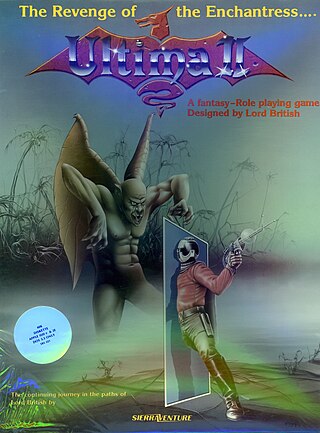
Ultima II: The Revenge of the Enchantress, released on August 24, 1982, for the Apple II, is the second role-playing video game in the Ultima series, and the second installment in Ultima's "Age of Darkness" trilogy.

Shaun Roger White is an American former professional snowboarder and skateboarder. He is a five-time Olympian and a three-time Olympic gold medalist in half-pipe snowboarding. He holds the world record for the most X Games gold medals and most Olympic gold medals by a snowboarder. He has also won 10 ESPY Awards throughout his career in various categories.
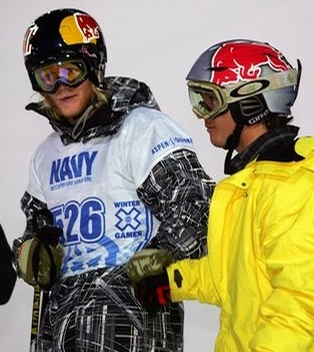
Tanner Hall is an American freeskier.

The Pete Maravich Assembly Center is a 13,215-seat multi-purpose arena in Baton Rouge, Louisiana. The arena opened in 1972. It was originally known as the LSU Assembly Center, but was renamed in honor of Pete Maravich, a Tiger basketball legend, shortly after his death in 1988. Louisiana governor Buddy Roemer signed an act to rename the building in Maravich's honor. Maravich never played in the arena as a collegian but played in it as a member of the Atlanta Hawks in a preseason game. But his exploits while at LSU led the university to build a larger home for the basketball team, which languished for decades in the shadow of the school's football program. The Maravich Center is known to locals as "The PMAC" or "Pete's Palace", or by its more nationally known nickname, "The Deaf Dome", coined by Dale Brown. The Maravich Center's neighbor, Tiger Stadium is known as "Death Valley".
Waterworks is a card game created by Parker Brothers in 1972, named for the space Water Works in the game Monopoly. The game pieces consist of: a deck of 110 pipe cards, a bathtub-shaped card tray, and 10 small metal wrenches. The object is for each player to create a pipeline of a designated length that begins with a valve and ends with a spout.

Pipe Mania is a puzzle video game developed by The Assembly Line for the Amiga and published in 1989. It was ported to several other platforms by Lucasfilm Games as Pipe Dream; the company distributed the game in the US. The player must connect randomly appearing pieces of pipe on a grid to a given length within a limited time.

Spy Fox 2: "Some Assembly Required" is an adventure game developed and published by Humongous Entertainment, part of their "Junior Adventure" line and the second entry in the Spy Fox series of games. The game follows the heroic Spy Fox as he races to stop a giant robot from destroying the World's Fair. The game was released for computers in September 1999.
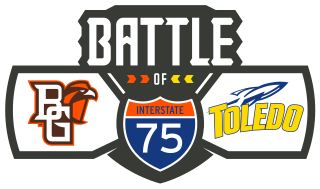
The Bowling Green–Toledo football rivalry is annual college football rivalry game between Mid-American Conference members Bowling Green State University (BGSU) and the University of Toledo (UT). The universities are separated by about 25 miles (40 km) along Interstate 75 (I-75). The Bowling Green Falcons and Toledo Rockets have exchanged two traveling trophies; the Peace Pipe Trophy (1980–2010), and the Battle of I-75 Trophy (2011–present). Toledo currently leads the series 43–41–4.
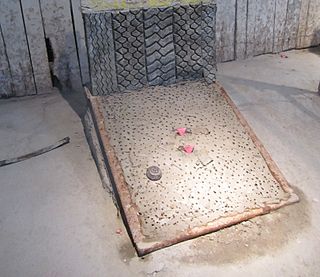
Tejo or turmequé, is a traditional throwing sport in Colombia. It is distinctive for its use of small targets containing gunpowder, which explode on impact.
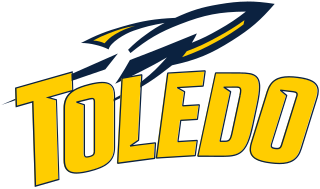
The Toledo Rockets are the intercollegiate athletic teams that represent the University of Toledo. The Rockets compete at the National Collegiate Athletic Association (NCAA) Division I level as a member of the Mid-American Conference (MAC). The school's colors are midnight blue and gold.

Mario and Donkey Kong: Minis on the Move, known in Japan as Mario & Donkey Kong: MiniMini Carnival, is a 2013 puzzle game developed by Nintendo Software Technology for the Nintendo 3DS. The fifth entry in the Mario vs. Donkey Kong series, it was released exclusively via the Nintendo eShop download service on May 9, 2013, in the PAL region and North America, and on July 24 in Japan.
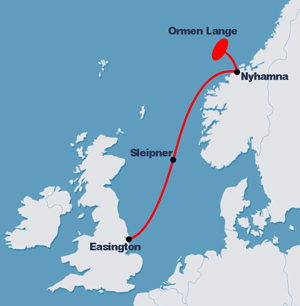
A submarine pipeline is a pipeline that is laid on the seabed or below it inside a trench. In some cases, the pipeline is mostly on-land but in places it crosses water expanses, such as small seas, straits and rivers. Submarine pipelines are used primarily to carry oil or gas, but transportation of water is also important. A distinction is sometimes made between a flowline and a pipeline. The former is an intrafield pipeline, in the sense that it is used to connect subsea wellheads, manifolds and the platform within a particular development field. The latter, sometimes referred to as an export pipeline, is used to bring the resource to shore. Sizeable pipeline construction projects need to take into account many factors, such as the offshore ecology, geohazards and environmental loading – they are often undertaken by multidisciplinary, international teams.














